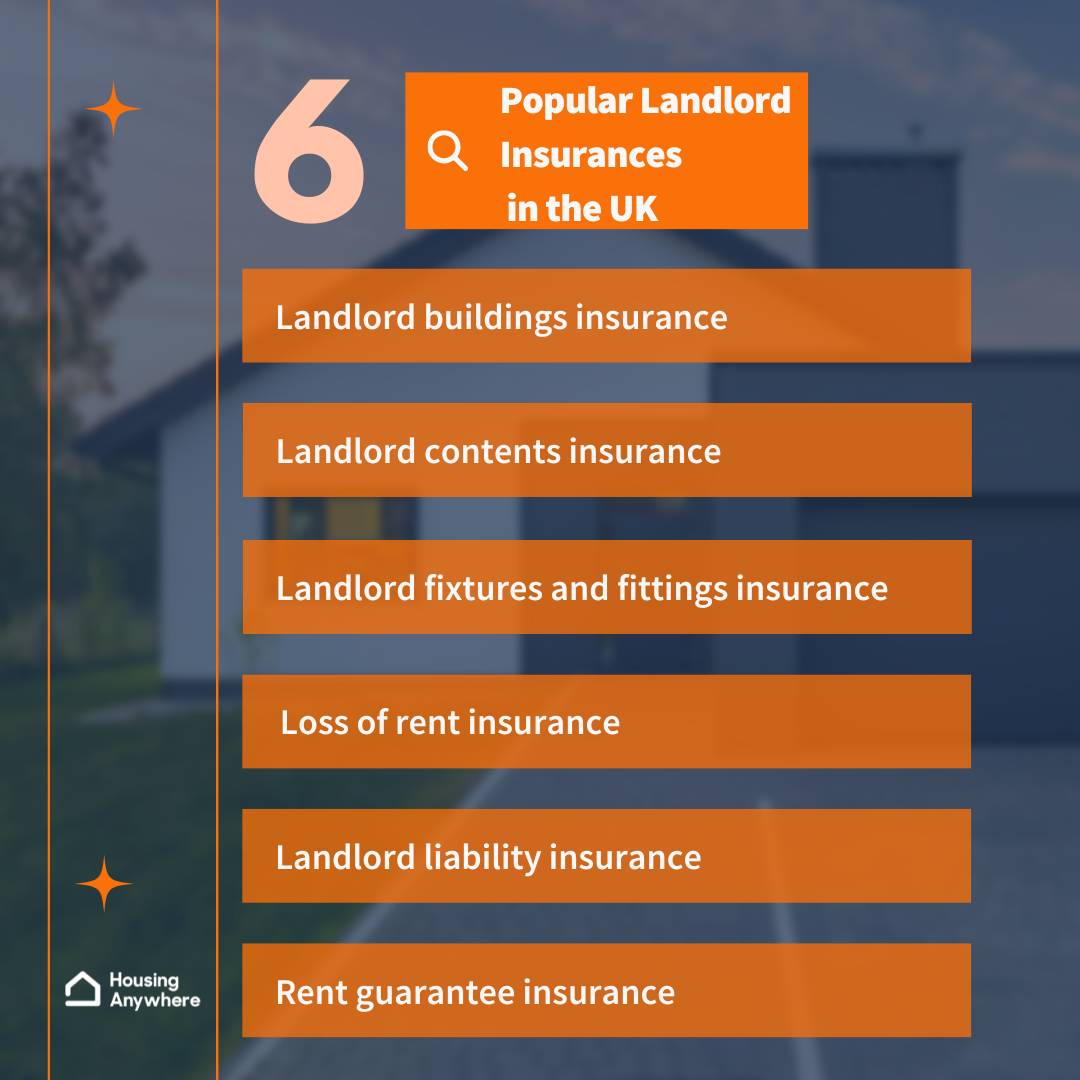Landlord insurance for rental properties: coverage and costs
Learn about the importance of landlord insurance and the different types of coverage available, such as landlord content insurance and rent guarantee.
Jale
A recent study with 755 UK-based landlords revealed that 13% of landlords have no landlord home insurance. Having no or little insurance is costing these landlords nearly £600 million out of pocket! Such hefty costs when renting out a property can easily be avoided with the right insurance.
This is why it’s important to find out…
- What types of insurance do I need as a landlord?
- Under which circumstances do they provide financial coverage?
- How much does landlord insurance cost per month?
Whether you are a novice or a veteran landlord, this guide will give you the information you need to decide on landlord insurance. So let’s dive in!
Is landlord insurance mandatory?
No, getting landlord insurance is not a legal requirement in the UK. But landlord insurance is crucial when letting your property as it can cover you against environmental or accidental damage, liabilities, and loss of rent. Most buy-to-let mortgages will require you to have it since a standard homeowners insurance will not cover all costs.
Having landlord insurance is a small price to pay for the protection it provides. It can protect you from loss of rental income and damages to personal assets, among other things.
What does landlord insurance cover?
Landlord insurance is a collection of insurance policies such as rental home insurance, liability insurance, and rent guarantee insurance. Typically, landlord insurance covers the landlord against damage to the property and assets, loss of rental income, and legal liabilities. But the exact coverage your insurance provides depends on the specific policies you select.
What types of landlord insurance are available?

There’s a variety of policies available to cover different risks. So you can take any type of insurance depending on what you want to protect yourself against, and form your own landlord insurance policy.
Here’re the 6 most common landlord insurances:
- Landlord buildings insurance
- Landlord contents insurance
- Landlord fixtures and fittings insurance
- Landlord liability insurance
- Loss of rent insurance
- Rent guarantee insurance
1. Landlord building insurance
Best for landlords who own an independent property and have a property in an area with a high risk of environmental hazard or theft.
Landlord building insurance covers the physical structure of your rental, such as its ceilings, walls, doors, and floors. It protects the building against various risks, such as fire, storm, flood, burst pipes, cracks, theft, and vandalism. The policy typically covers the cost of repairs or rebuilding of the property. Some insurance companies also provide coverage for any loss of rental income during the repair period.
It’s good to note that landlord insurance and building insurance should not be used interchangeably. Building insurance is a type of landlord insurance. Whereas landlord insurance is a comprehensive group of insurance packages that covers more than just damage to physical structures.
2. Landlord contents insurance
Best for landlords who rent out a furnished, semi-furnished, or upholstered home.
Contents insurance for landlords protects against damage, theft or loss to any furniture, appliance or other household item provided by the landlord. This policy won’t cover anything tenants bring to the rental. So, it’s essential to establish the inventory list before your tenant moves in. Also, landlord content insurance doesn't cover damage caused by wear and tear.
There’re 2 nuances you need to know about contents insurance for rental properties.
Firstly, insurance companies have different interpretations of this coverage. Some may categorize certain items in your property as fixtures and fittings instead of contents (e.g., carpets and lights). If there’s any confusion or disagreement about the classification of certain items, it’s best to clarify with your insurance company before purchasing the policy.
Secondly, some insurance companies don’t cover accidental damages, such as spills, stains, or broken items, as a part of the standard content insurance. If it’s the case, then you’ll need to select a supplementary accidental damage policy.
3. Landlord fixtures and fittings insurance
Best for landlords who offer a fully or semi-furnished home with new or expensive fixtures and fittings. Particularly great for landlords who're renting out part of their primary residence or renting their home temporarily.
This insurance protects the fixtures and fittings in the property, such as built-in wardrobes, kitchen cabinets, and bathroom fixtures. This policy offers compensation against accidental damage, loss, theft, water leak, fire, and sometimes even malicious damage. But, this policy doesn't cover mould damage resulted from negligance, wear and tear, or lack of maintenance.
4. Landlord liability insurance
Best for landlords who offer a furnished or an old property and want financial protection against huge compensation or legal costs. Also great for landlords who reside abroad and can't inspect or take care of the property in person.
Landlord liability insurance protects landlords if any defect in the property causes injury to a tenant or any third party (and their belongings). Liability insurance will cover legal fees and any compensation costs arising from any complaints of harm or negligence from a tenant. For instance, if your tenant sues you for getting injured by broken stairs in the rental apartment.
5. Loss of rent insurance
Best for landlords who own a property in an area with a high risk of an environmental hazard. Or landlords who rely heavily on rent income to pay off costs, such as mortgage.
Loss of rent insurance covers the landlord for the loss of rental income if a property becomes uninhabitable because of natural disasters such as a fire or flood. You’ll also receive compensation while you do repair work and can’t have a new tenant. Bear in mind that your policy must state in which cases this insurance is valid.
6. Rent guarantee insurance
Best for all landlords who want financial protection from tenants who fail to pay rent.
Rent guarantee insurance covers landlords against the possibility of a tenant defaulting on their rent payment. Most insurance companies offer rent compensation for up to a year, covering legal fees and damage made by tenants under this policy. Depending on your insurer, you may need to send your tenant an eviction letter to receive the compensation.
How much does landlord insurance cost?
The cost of landlord insurance depends on several factors, such as the location, type and age of the property, the coverage amount selected, the number of expensive items in the property, and the characteristics of the tenants (age, employment, and marital status).
The average cost of landlord insurance per month depends on which landlord insurance policies you opt for. Here’s a breakdown of the cost of individual insurances:
| Landlord insurance | Monthly avg. price |
|---|---|
| Buildings insurance | £30 |
| Contents insurance | £32 |
| Fixtures and fittings insurance | £12 |
| Property owners' liability | £35 |
| Loss of rent | £17 |
| Rent guarantee insurance | £40 |
If you take out all the policies for better protection, the average cost of basic landlord insurance per month is £166 in the UK.
This article is for informational purposes only. Please consult the appropriate authorities for the latest developments or a lawyer for legal advice.
For feedback on this article or other suggestions, please email content@housinganywhere.com
Related articles
In this article
Rent out faster on HousingAnywhere
On average, 50% of landlords rent out their property within 14 days on HousingAnywhere.
Rent out my property now

